Men and Materiel of War? See the Combined Ops Dept.!
Canadians who operated the landing crafts make
the news again... indirectly, of course
The Russians are closing a trap. Munich is blasted in a heavy raid. Nazi resistance is crushed in the Donets basin. And the Canadians in Combined Operations, members of the 80th Flotilla of Landing Crafts, are moving Allied troops and all the materiel war like clockwork.
Russians, Munich, and Nazi resistance can be spotted in the headlines. The Canadians cannot be seen but for two poor quality photos that appear below.
(My to-do list is growing! "Find better copies of the photos. But not on microfiche!")
Yes. The Canadians are in there somewhere : )
Better photos likely exist. But where?
By Tuesday, September 7, 1943, landings had taken place for five straight days at the toe of the boot in Italy. For the first week at least, Canadians in Combined Ops would have been operating ALCs and LCMs almost non-stop so that Monty and his 8th Army could push inland fully supplied.
We know Ross Munro, William Stewart, Sholto Watt (The Montreal Star) and many other members of the Canadian Press were sending stories back to Canada on a regular basis, with photographs. (The Imperial War Museum in the UK is home to 1000s upon 1000s. Please check headings 'Italy' and 'photographs' in right hand margin of this website/blog). And as I continue researching microfiche at the University of Western Ontario I will collect many more details related to the Allied invasion of Italy that will inform us, directly and indirectly, about the role of Canadians during World War II.
More reports from The Montreal Star follow:
In the fourth paragraph of this next section we read, "The Allies are rushing huge stores of materials into the Mediterranean theatre" (as part of) "new lively movements... in the Western Mediterranean" referring to the Gibraltar area. So not only are Canadians busy now with their landing crafts, taking men and materials of war from Messina to Reggio, but more supplies to unload are coming their way. Reports indicate that the Canadians in Combined Ops (the 80th Flotilla) would be busy for another 3 - 4 weeks in The Med.
"Noto Beach head" refers to a site in SE Sicily. The time is likely about mid-
July, two months earlier. Italian prisoners surrendered and went to work.
Photo is from St. Nazaire to Singapore, Canadian Amphibious War
Some bits of news catch my eye though not related to Allied forces in Italy:
The sound of music was often heard wherever Canadians served. Moonlight Serenade was a favourite for a time, and stories abound about the lengths some troops would go to in order to keep the music playing while the war lasted. (Example: Canadians in Combined Ops had a wind-up record player and a small supply of 78 rpm records - which they had to spin by hand - while living in a cave in SE Sicily in July, 1943).
The war against the U-Boat slowly turned to the Allies favour:
A story of another form of 'combined operations follows:
Below are a few short paragraphs from my father's memoirs about his living conditions in Messina, Sicily during the month of September, 1943 while he was busy delivering men and materials of war across the Messina Strait to Reggio di Calabria:
Our living quarters was a huge Sicilian home (in Messina) and some nights I slept on my hammock on a beautifully patterned marble floor. However, since that was a hard bunk I sometimes slung my hammock, covered with mosquito netting, between two orange trees in the immense yard. Canned food was quite plentiful now and several young Sicilian boys, quite under-nourished, came begging for handouts, especially chocolota, as they called our chocolate bars.
I took a boy about 11 years old under my wing when off duty. In one corner of the yard was a low, square, cement-walled affair complete with a cement floor, tap and drain hole. It was here I introduced “Peepo” to Ivory soap, Colgate toothpaste and hair tonic for his short, shiny, ringletted black hair.
My name was “Do-go” which I am still called today at navy reunions, and this boy really shone when I had finished his toilet. Peepo wasn’t too keen on soap and water and it certainly was obvious, but not for long.
I tried to learn some of his language, and he mine (the 'Canadian Marina'). Although we were from countries thousands of miles apart, the war had brought us together and we got along famously.
I tried to learn some of his language, and he mine (the 'Canadian Marina'). Although we were from countries thousands of miles apart, the war had brought us together and we got along famously.
He and I also wandered about Messina. I went with Peepo (Pedro Guiseppe) to meet his Mamma. I took some canned food, chocolota and compost tea, a complete tea in a can exactly like a sardine can, with a key attached as well. Although the lad’s mother was forty-ish, she appeared older. Over a cup of tea, and with difficulty, Mrs. Guiseppe said she would do some laundry for me, and mending. (Page 115, "Well Done, Dad")
More news stories and photographs from The Montreal Star will follow.
Please link to Editor's Research: Invasion of Italy (5) - Montreal Star (Sept. 6, '43)
Unattributed Photos GH
More news stories and photographs from The Montreal Star will follow.
Unattributed Photos GH




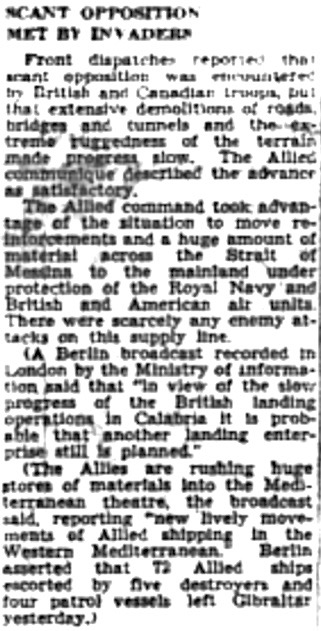


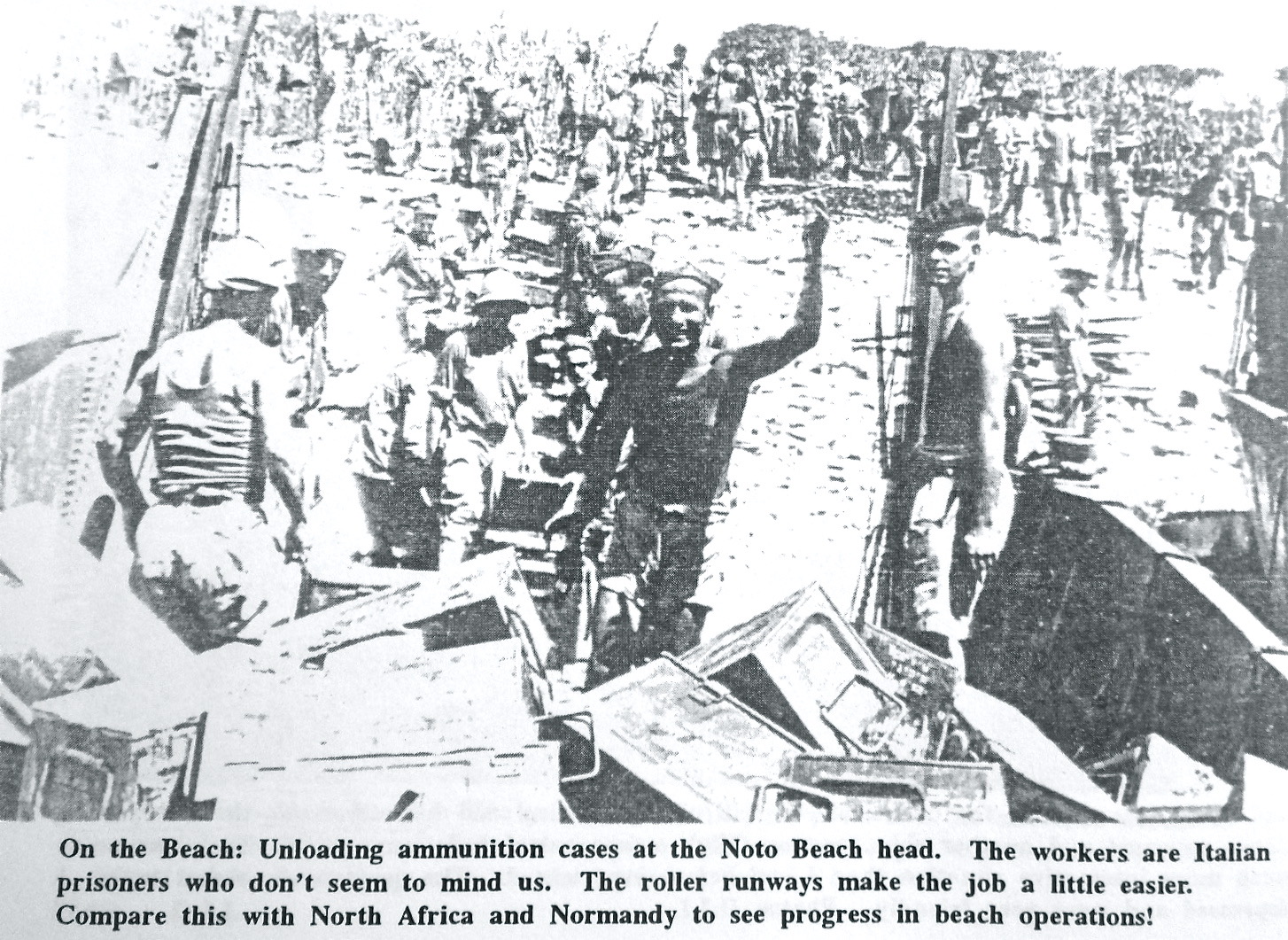




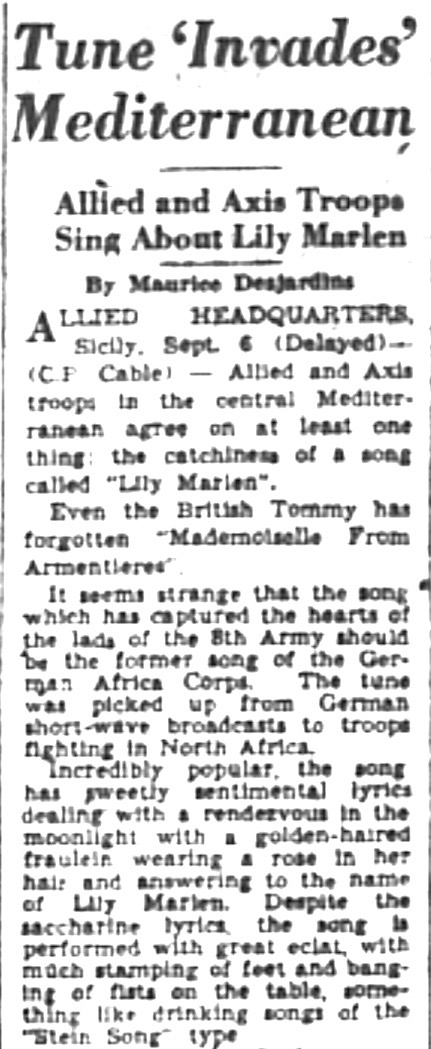




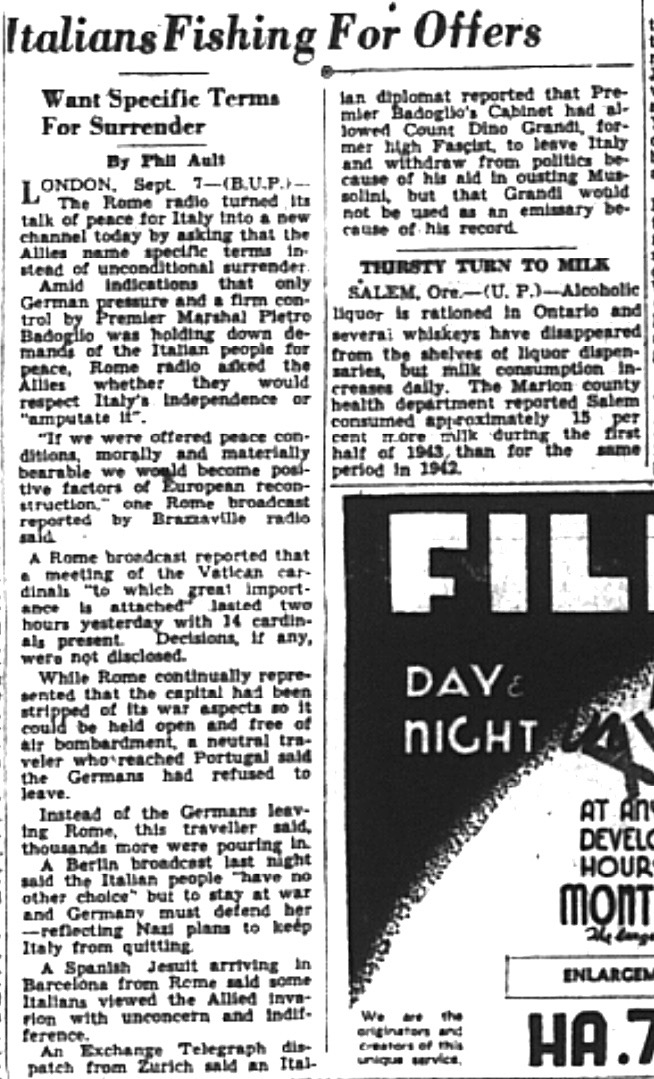
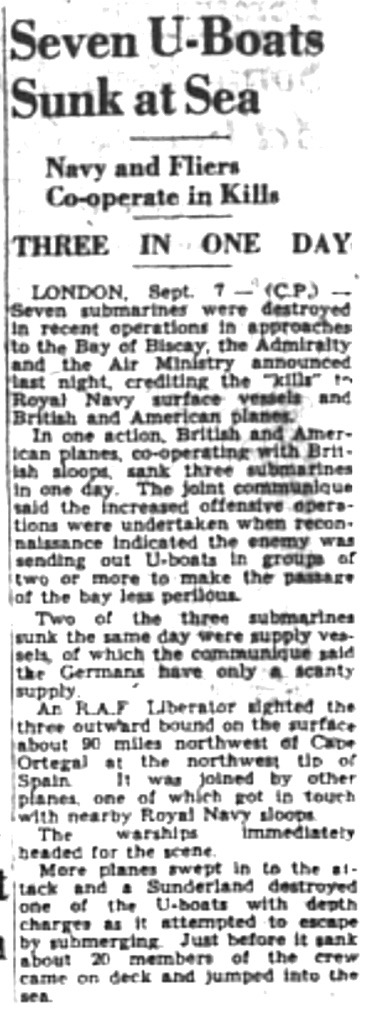


No comments:
Post a Comment